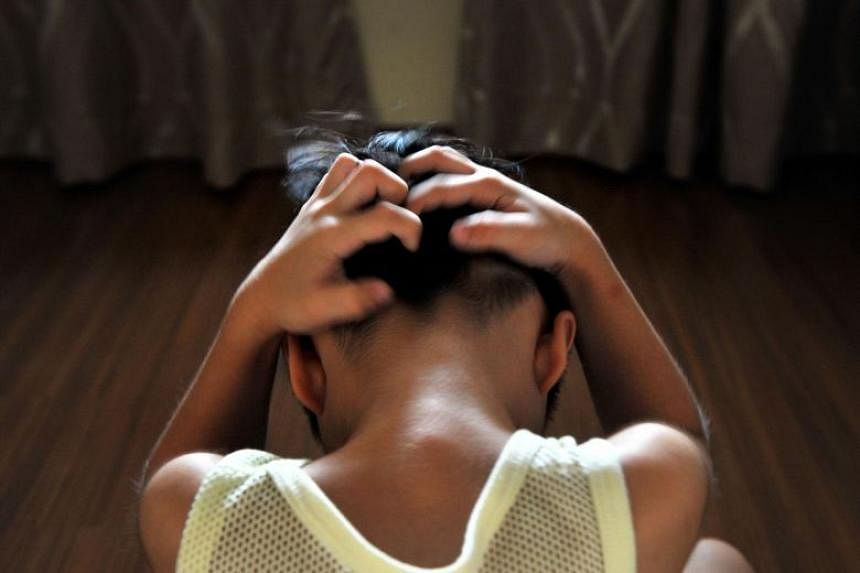SINGAPORE – Several safeguards are in place to ensure the welfare of children in the adoption process, said the Ministry of Social and Family Development (MSF) in the wake of the sentencing of a man who sexually abused a teenage girl whom he wanted to adopt.
Responding to queries, the ministry outlined the steps involved, from interviewing the child and the prospective adopters’ social networks to assessing the stability of the marital relationship.
“While every effort is made to ensure adopted children enter families that provide a safe environment, it is not possible to predict with absolute certainty how the relationship between an adopted child and the adoptive parents develops,” it added.
“Nevertheless, CPS (Child Protective Service) has not come across any case in recent years of any adoptive parent found to have committed child abuse.”
The Straits Times had asked MSF how many adoptive parents have been caught abusing children under their care, among other queries on how the ministry ensures the safety of children who are being adopted.
A 39-year-old man was on Nov 28 sentenced to 10 years’ jail and nine strokes of the cane after pleading guilty to four counts of exploitative sexual penetration of a minor who is 16 or 17.
The man, a general manager at a youth leadership development firm, got to know the girl while running a camp at a group therapeutic home she was staying in.
He and his wife decided to adopt the girl, who had been sexually abused by her father after her mother’s suicide.
When the girl, then 16, was temporarily placed in the couple’s care during the adoption process, the man, who is a father of two young boys, repeatedly subjected her to multiple forms of sexual penetration.
This took place almost every day between September and mid-November 2020.
The case came to light when the girl told her teacher, who alerted the police.
Commenting on the case, MSF said the man and his wife had no criminal record and adverse history. No risk factors emerged during the assessment of the couple’s suitability to be volunteers in the therapeutic group home or as kith caregivers for the girl.
“Trained professionals assessed them as caring and capable of supporting the child’s needs,” it said.
Kith caregivers are not related to a child and meet the child through family or community connections, and are not registered as foster parents.
Once CPS has assessed that it is no longer possible to reunify the child with the birth parents and to be put up for adoption, the child will be matched with suitable prospective adopters.
The ministry outlined key considerations for prospective adopters:
- They must generally be married and apply as a couple.
- During the first stage, they undergo an adoption suitability assessment conducted by social service staff from an accredited adoption agency. They are assessed on their ability to provide a nurturing environment, their motivations for adoption, the stability of the marital relationship, and their overall capacity to meet the child’s needs. They are also screened for risk factors, including criminal records.
If found suitable, prospective adopters receive a favourable home study report, which allows them to search for a child through adoption agencies or their own contacts.
Once a child is identified, the prospective adopters apply to the court, which will appoint MSF as the guardian in adoption – who safeguards the adopted child’s interest. If the child is already being cared for by the family, an MSF officer will conduct an investigation to check on the child’s well-being.
This stage involves interviews to gather the child’s views on the adoption, checks with character referees and with prospective adopters’ networks, which could include household members and friends.
For families who require support during or after the adoption application process, MSF and adoption agencies may refer them to Family Service Centres and school counsellors. These community touchpoints can help watch out for the adopted child, said MSF.
Should any concerns arise about the child’s safety during the adoption process, such as harsh punishment, CPS will step in to investigate.
Responding to queries on therapeutic group homes, MSF said there are three such MSF-funded facilities in Singapore. They are run by social service agencies and provide treatment to help children and young people recover from their past traumatic experiences.
MSF said all volunteers in MSF-funded programmes who work with clients undergo suitability assessments and background reference checks by the social service agencies.
As part of the assessment, all prospective volunteers must provide information on their areas of interest in volunteering, skills they can offer, medical concerns, and prior criminal convictions. They will then be interviewed on their motivations and ability to engage clients.
Background checks are done to screen them for criminal records and other risk factors, including adverse history. Social service agencies may also check with character references and other agencies which the prospective volunteers previously volunteered with.
Selected candidates undergo training before they begin volunteering, MSF said.
Spotting signs of abuse
Social work practitioners told ST that sexual abuse is often committed by a family member, relative or friend who has gained the trust of the victims and their family.
Mr Alvin Goh, executive director of Children’s Aid Society, which runs Melrose Home, said it is hard to spot perpetrators, who blackmail the children to keep them from telling others.
Signs of abuse include caregivers blocking access to the children, and controlling what the children say, said Mr Goh. The Melrose team also speaks to the children alone to hear their honest feelings.
Other signs are when the children appear frightened, in a low mood, withdrawn or easily agitated, or behave otherwise differently from their usual selves, said Mr Goh.
Alarm bells should also ring when children avoid being left alone with the perpetrator, or act rebelliously or submissively towards them.
Mr Goh said trauma affects the development of the part of the brain that regulates emotions, making survivors either act out or suppress their emotions.
Madam Zaharah Ariff, executive director of Casa Raudha, a crisis shelter for victims of domestic violence, said common signs that children may be experiencing sexual abuse include age-inappropriate sexual behaviours and talk, not wanting to remove their clothes to shower, and having new words for private parts.
In teens, signs may include depression and anxiety, self-harm, substance abuse, sexual promiscuity or a fear of intimacy.
Members of the public who witness or suspect domestic violence or child abuse can report it to the 24/7 National Anti-Violence and Sexual Harassment Helpline on 1800-777-0000 or to the police.


